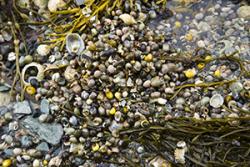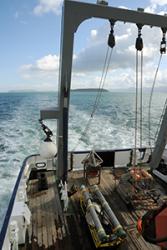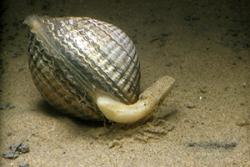New €7m EU investment in Wales and Ireland’s fisheries industry
 More than €7m of EU funds will be invested in science and technology projects to help protect and develop the marine life and the fisheries industry in Wales and Ireland.
More than €7m of EU funds will be invested in science and technology projects to help protect and develop the marine life and the fisheries industry in Wales and Ireland.
The funding will support a scientific investigation of the opportunities and risks posed by climate change in the Irish Sea and the deployment of technology to reduce energy costs and help businesses develop new products and processes.
Both projects are being funded through the EU’s Ireland-Wales co-operation programme, which is helping to strengthen economic links and cross-border collaboration between the two countries.
Welsh Government Finance Secretary Mark Drakeford said:
“These projects bring together expertise from both nations to support an industry in Wales and Ireland that shares the same opportunities, challenges and resources within the Irish Sea.
“Collaborative schemes like these are why we are clear about the advantages to Wales of ongoing access to territorial co-operation programmes, including the Ireland-Wales programme, when the UK leaves the EU.”
 Bangor University's research vessel, the Prince MadogIrish Minister for Public Expenditure and Reform, Paschal Donohoe, T.D. said:
Bangor University's research vessel, the Prince MadogIrish Minister for Public Expenditure and Reform, Paschal Donohoe, T.D. said:
“I am delighted to see the launch of another two projects under the Ireland-Wales programme.
“This is a clear demonstration of our continuing commitment to the programme. It also underlines the importance of EU funding for scientific research into areas of shared interest.”
Around €5.5m of EU funds will support the Bluefish marine science partnership, which will investigate the effects of climate change in the Irish Sea on the sustainability of fish and shellfish.
Led by Bangor University, in partnership with Irish and Welsh organisations, the project will assess how climate change is affecting the health of fish stocks, the migratory movement of commercial fish, and risks from new non-native species.
The project will develop solutions to help fisheries businesses adapt to environmental changes in the Irish Sea and capitalise on new commercial opportunities.
Dr Shelagh Malham, senior research fellow at Bangor University’s School of Ocean Sciences, said:
“We need to maintain a sustainable food supply chain.
“The combination of research between academic partners and collaboration with industry partners will ensure these vital industries receive the information and support they need to be more resilient to the changes the industry is facing and will continue to face in coming years, and to react to opportunities.”
 A cockle on the sea bedA further €1.8m of EU funds will support the piSCES project, which will develop and test a new ‘smart grid’ electricity network to help reduce energy costs for the fisheries industry in Ireland and Wales.
A cockle on the sea bedA further €1.8m of EU funds will support the piSCES project, which will develop and test a new ‘smart grid’ electricity network to help reduce energy costs for the fisheries industry in Ireland and Wales.
The Telecommunications Software and Systems Group (TSSG) at Waterford Institute of Technology will research and design new energy networks in collaboration with Cardiff University, while Milford Haven Port Authority and Ireland’s seafood development agency, Bord Iascaigh Mhara (BIM), will work with businesses in the fish processing sector to provide live data and test sites.
piSCES aims to help fisheries businesses in remote locations minimise their exposure to energy price peaks, reduce their carbon footprint and improve the quality and security of energy supply.
Sean Lyons, project manager at TSSG, said:
"TSSG is delighted to have secured EU funding through the Ireland-Wales programme for the piSCES project, which will see us further develop smart grid technologies and implement them in energy-intensive operations in the fish processing industry.
"Collaborating cross border with our partners will bring together a wealth of experience from an R&D and implementation perspective and expose the technology to different regulatory environments bringing significant benefits to the industry."
Publication date: 6 March 2017
